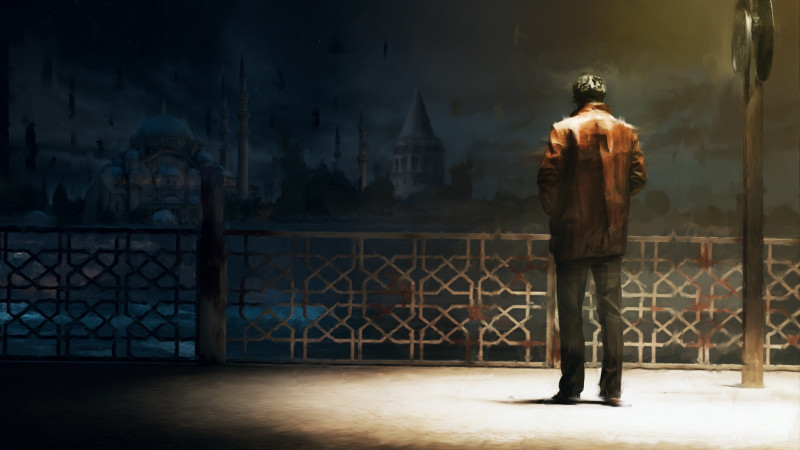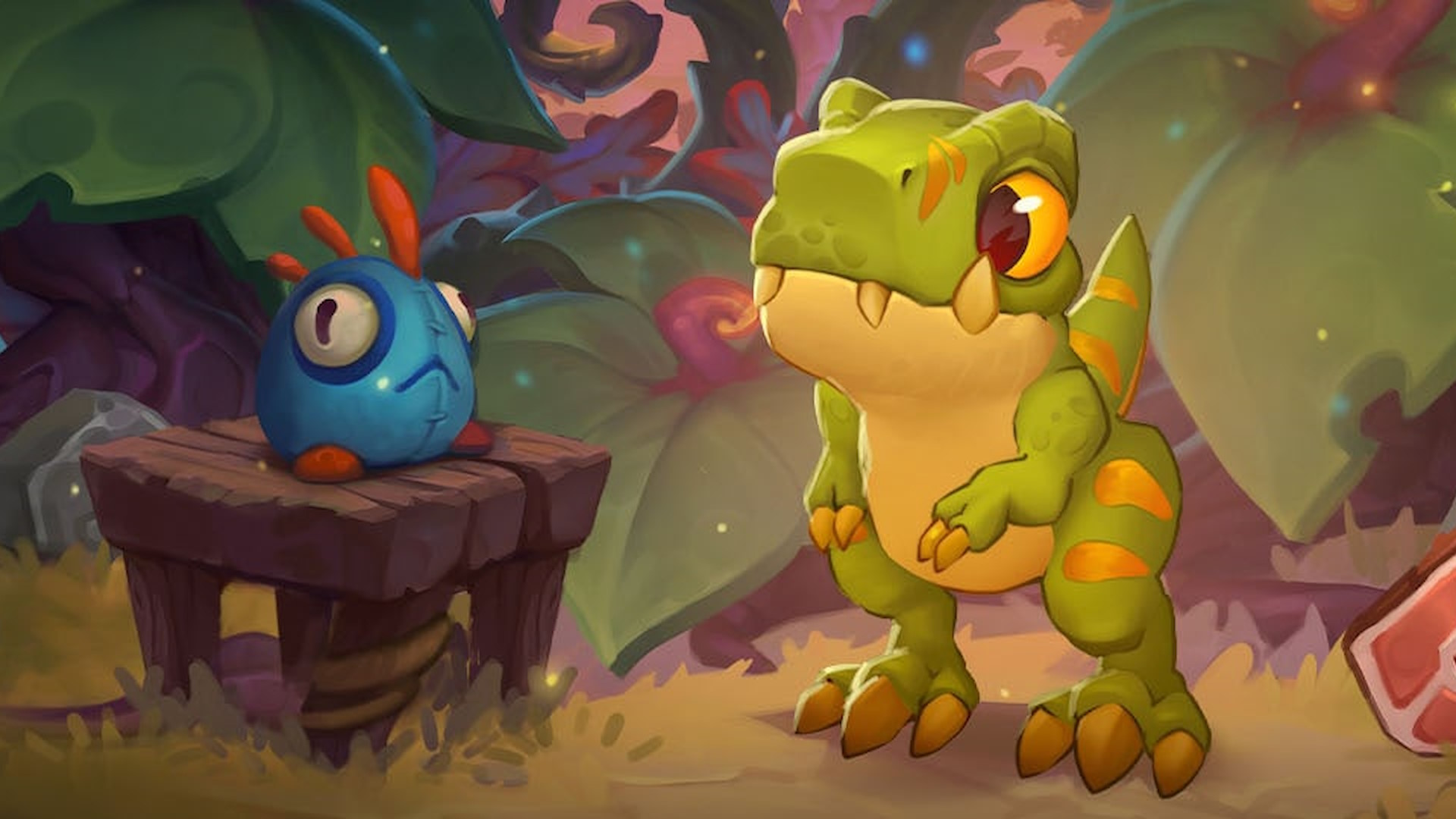
Like a sugar-crazed child working their way to the bottom of a Halloween bag full of treats, A Plague Tale: Requiem is confident that the things which made the first game great will be even more delectable in ludicrous quantities. You liked massive swarms of rats? Well, how about we increase the number of them by a degree of 1,000! You enjoyed a gruesome and harrowing journey that tested the limits of your emotional resilience? Great, let’s increase your personal suffering by 200%! This follow-up to one of my favorite action-adventure games of the previous console generation turns the dials up to 11 in practically every way, and overwhelmingly benefits from those escalations despite sometimes being a bit heavy on the nihilism. With improved stealth action mechanics, a fantastic (and deeply depressing) story, and graphics that had me gawking, A Plague Tale: Requiem is an impressive glow up that’s easily worth the immense horrors it subjected me to.
Following in the creepy, skittering footsteps of its predecessor, A Plague Tale: Innocence, Requiem is a somber third-person action-adventure game that takes place in an alternate history version of 14th century France during the Hundred Years’ War. You play as Amicia, older sister to an afflicted and disturbed young boy named Hugo, and must travel through both beautiful and dystopian areas, run away from a tsunami of plague rats, and sneak or murder your way through an army of half-witted soldiers all in the name of saving your brother. You’ll spend your time tiptoeing past enemies that can kill you almost instantly in competent but unoriginal stealth action, or using light sources to make your way through hordes of ravenous, man-eating rats in much more memorable puzzle-based areas. The best sections, though, combine both of these elements, and force you to contend with not only the terrifying flood of rats, but also soldiers dumb enough to try and kill you while surrounded by a problem you’d think they’d be way more concerned about.
What We Said About A Plague Tale: Innocence
A Plague Tale: Innocence’s story of two orphans surviving in a world ravaged by the Black Death is compelling and the stealth gameplay that runs through it is fine-tuned, but the rat-infested world looks more dangerous than it actually is. Everything from the alchemy abilities to the layout of levels feels a bit too guided and the prevalence of crafting materials removes the need to make decisions about how you want to get past your enemies. The story stands out as a result, but there’s not a lot of freedom to experiment or consequences for reckless decisions. – Steven Petite, May 13, 2019
Score: 7
Read our full review of A Plague Tale: Innocence.
In between all that action, you’ll unravel the incredibly bizarre and excessively complex mystery of your brother’s illness, while meeting memorable characters along the way – some of whom are nuanced and well-written, while others just want to murder you because they’re insane sociopaths and everything in this world is awful. If you thought the original Plague Tale was grim, this follow-up is so dark and pessimistic it makes its predecessor look bright-eyed and upbeat by comparison. Even though Amicia, Hugo, and the companions they meet along the way never seem to lose hope and form heartwarming bonds of comradery as the world collapses around them, it’s still very exhausting to have your dreams crushed for 20 hours as you’re continuously betrayed, maimed, forced to see the people you care about die, and subjected to horrors that would break a normal person in minutes.
That said, the story is still extremely well told, filled with unforgettable moments that left my mouth agape and my head turning to imaginary referees in anticipation that a flag would be thrown onto the field for being too over-the-top. I also adored the resilient and ill-tempered Amicia and genuinely wanted to fight to defend her lovable brother Hugo like he was my own kin – the writing and performances are so strong all around that it’s hard to not feel something, positive or negative, for the entire cast. A few parts of this enjoyable journey can be a bit convoluted or occasionally meander for a moment, but I ultimately came away from it glad I put myself through the horrors of rat hell for the story I got in exchange.
It’s really hard to overstate just how good Requiem looks and sounds.
That tale is aided by absolutely stunning graphics, music, and voice acting that just made me want to spend time exploring this ruined world and hanging out with my NPC allies. It’s really hard to overstate just how good Requiem looks and sounds, especially when it throws every ounce of processing power available to render a million rats barreling towards you – it almost made the subsequent night terrors worth it. My only gripe is that sometimes Requiem is so ambitious that my Xbox Series X struggled to keep up, and at times would freeze up for seconds at a time, especially when lots of rat shenanigans were happening on screen.
Requiem doesn’t do a ton to distinguish itself from Innocence when it comes to gameplay, but it does refine the existing blueprint to great effect. Some of the weaker moments are the standard stealth action sequences where you’re sneaking around or strategically eliminating soldiers as you work your way toward an objective. Using the sling, crossbow, and bag of alchemical tricks at Amicia’s disposal isn’t boring by any means, but it also doesn’t do much I haven’t seen in numerous stealth games before. You can distract enemies by throwing rocks, use fire to ignite dangerous items in the environment to take threats out, and sneak up on enemies to kill them – all standard fare for the genre. In fairness, there are some interesting ways you can use your alchemy bag to throw your enemies under the rat bus, like the Extinguis powder that can put out fires, leaving nearby baddies open to getting mauled by thousands of tiny teeth, but most of these tricks aren’t new to the series.
The only truly standout addition Requiem brings is that NPC allies can now mix up your stealth options with their own special abilities. One ally, Lucas, can stun enemies with his Stupifacio powder, while a soldier named Arnaud can be directed to confront enemies in open battle. Whichever character happens to be with you at a given point in the story is likely to influence your strategy when approaching certain obstacles, and that does wonders in terms of keeping its otherwise pretty by-the-numbers stealth slightly more interesting.
There are also a handful of sections that do away with stealth and have you take waves of enemies on in a direct fight, and these don’t work at all. Not only is it fairly ridiculous to see a teenager use a bag of rocks to defeat a dozen fully-armored, battle hardened soldiers, but the stealth-centric tools you’re given are immediately limiting in these scenarios. That meant I usually ended up playing keep away with the bad guys until I saw an opening to take one out, often by slinging a rock at a jar that could be used to light them on fire or something of that nature.
Rats in Requiem are a glorious and horrifying force of nature.
It’s only when the glorious and absolutely horrifying rats come to play that Requiem really shines, and this sequel had me questioning everything I thought I knew about my red-eyed foes. In Innocence the rats coated the floors and served as a creative game of “the floor is lava,” whereas in Requiem they’re a force of nature, capable of bursting through stone walls, piling on one another to reach tall surfaces, and even swallowing entire cities (yes, you read that correctly). You’ll still contend with plenty of areas that have you moving past a floor coated with filthy biters by using rat-repelling light in creative ways, but now you’ll also have sections where no amount of light can save you from the literal tidal wave of rats that are barreling toward you, and it’s awful in the best kind of way.
That said, solving the rat-centric puzzles that stand between you and your objective are almost always a breeze, even if they are very cool. It’s definitely satisfying, for example, to go around shooting down hunks of meat to distract a group of rats long enough for you to run by, but the solutions are either almost always immediately apparent or told to you outright through the campaign’s extensive tutorial. A few new wrinkles make for some memorable moments, like how you can use the crossbow to shoot fire arrows into the environment to make small patches of safety from the rats, or how you can throw tar at a fire to make it much brighter for a short period of time, extending its bubble of safety. But even in these cases, I rarely felt challenged by any of these obstacles and mostly just blew through each of these areas without ever feeling like I wasn’t in control.
However, my favorite parts of Requiem were when rats and soldiers occupied the same space, forcing me to make use of both stealth and puzzle solving at the same time. There were moments where I’d try to find the perfect window to give some guards the slip, only to find an army of rats waiting in the darkness ahead, which sent me running back into hiding before the guard saw me panicking out in the open. On the other hand, sometimes I would find a clever way to get past a section of rats, only for my actions to draw the attention of a guard who then put an arrow through my chest just as I naively thought I’d achieved victory. Managing these two mindsets was not only challenging and unique, but absurdly fun and tested the limits of my creativity and grit.
Of course, if I wasn’t interested in stealth, outright combat was always on the table, and what’s neat about Requiem is that whichever playstyle you opt for informs how your character evolves throughout the journey. Because I favored the challenge of pure stealth, my character leveled up her Prudence stat and unlocked useful abilities that made me better at stealthing around, like a faster movement speed while sneaking, for example. Alternatively, I could have leveled Opportunism, which makes you better at taking advantage of the environment to kill enemies, or Aggressive, which lets you do rude stuff like push a soldier into a pile of rats like a complete reprobate. The few times I used Opportunism or Aggressive playstyles, I found that any semblance of challenge was sucked right out of the encounter since it allowed me to simply not worry about getting caught – but it’s at least nice to have it as an option when I was irritated by the hardships of stealth or simply wanted a change of pace.
As I worked my way through the roughly 20-hour campaign, I searched for worthwhile collectibles that rewarded me with a small story moment and missable dialogue, as well as interesting tool upgrades that allowed me to do things like carry more alchemical ingredients or be a more efficient killer. There’s even a few hidden side quests that unlock some additional supplies or stat-altering equipment, which made me feel properly rewarded for my nosiness. That extra work paid off, since Requiem includes a New Game+ mode that increases the difficulty and offers some compelling new challenges for those who want to dive deeper, which is a nice touch.






